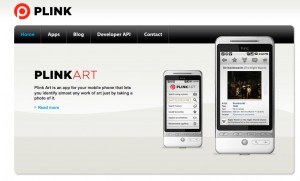Long, thoughtful post by Louis Gray.
For me, more than the over-used phrase of "open", the promise of true multitasking, and the platform's integration with Google Apps, was one word – "Choice". Choice of handsets. Choice of carriers. Choice of manufacturers. Second behind the word choice has to be "Momentum". I can see that Android has momentum in terms of improved quality, in terms of the number of devices sold and users, and yes, applications, which are growing in quantity, soon to be followed by quality. I really do believe that if Android does not already have a market share lead over Apple yet in this discussion, they soon will. It is inevitable. The growth in the number of handsets, carriers and users will drive more developers to the platform, and the holdouts who are not there will eventually make the move. And yes, third is "Cloud" – the idea that I don't need to be tied to my desktop computer to manage data on the phone, but instead, the phone is built to tap into data stored on the Web. Fourth is "Capability". The Android platform, as the Droid commercials offer, simply does more. The power of the mobile hotspot cannot be understated, and the iPhone is a zero there…
Worth reading in full.


